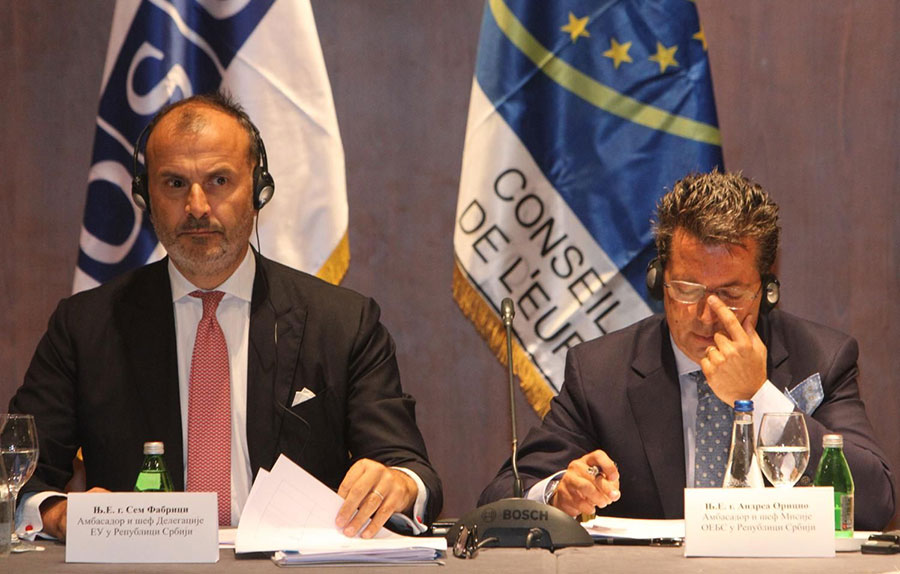Constitutional reform is not being undertaken for the benefit of the EU, but for the benefit of Serbian citizens, with the goal of achieving efficient and accountable judiciary, said Serbian Prime Minister Ana Brnabic opening a roundtable on Constitutional amendments. “In the end, we are doing this for our citizens and our economy to have judicial principles no one is calling into question. To have independent, efficient and accountable judiciary,” Brnabic said.
Head of the EU Delegation to Serbia Sem Fabrizi said that the rule of law was one of the key elements for Serbia’s EU accession, adding that constitutional reform should eliminate political influence on the judiciary, describing this as one the main prerequisites for accession. Read Ambassador Fabrizi’s full speech here
Head of judiciary and international legal cooperation department of the CoE Hana Juncker said that the main challenge of the constitutional reform was to secure independence of the judiciary.
Head of OSCE Mission in Serbia Andrea Orizio said that the goal of the reform was to achieve independent and efficient judiciary for the benefit of citizens, adding that by implementing the reform, Serbia is laying foundation for what it strives to become. He also said that the Venice Commission provided an entire set of recommendations in a number of different areas.
Minister of European Integration Jadranka Joksimovic said that Serbia had adopted constitutional amendments in line with all procedures and made those changes in the best of faith and in accordance with best practices. She added that each country is free to apply best solutions stemming from the European judicial practice in line with its own historical context and tradition.
Minister of Justice Nela Kuburovic said that current, third constitutional amendments draft was not the final version, adding that comments from the round table would be included in the version that will be submitted to the Parliamentary Committee on Constitutional and Legislative Issues. She added that the Committee would then hold debates on proposed amendments.
Vice President of the Judges’ Association of Serbia Omer Hadziomerovic told the press that the latest version of amendments did nothing to increase independence of the judiciary. He said that amendments propose the removal of the Minister of Justice in the High Judicial Council in an effort to eliminate political pressures on the judiciary, but added that current draft opened other avenues to exert political influence.
Deputy President of the State Prosecutorial Council Goran Ilic told the press that those proposals failed to eliminate political influence on the judiciary, adding that current proposals tried to put the prosecution into “a time capsule.” According to the draft proposal, he said, members of the future High Prosecutorial Council – who are to be elected from the ranks of public prosecutors – will be a minority, which is contrary to the Action Plan for chapter 23 which had proposed at least 50 per cent of members to be elected from the ranks of public prosecutors.




